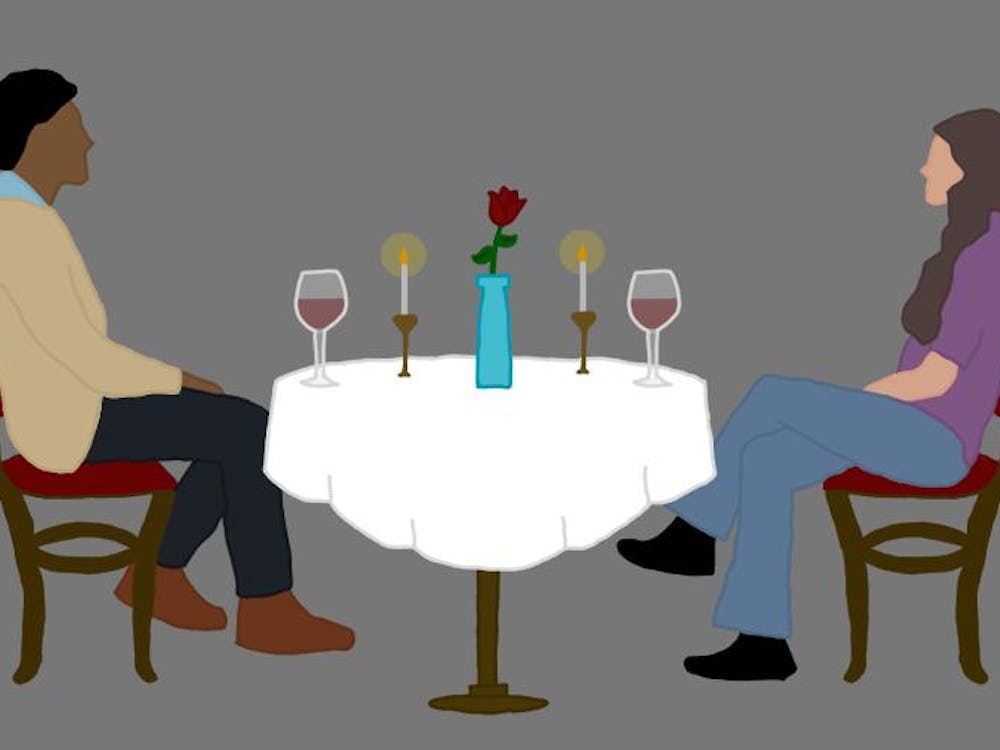A new academic year has once again arrived at the University. Excited first-years are swarming McCormick Road, upperclassmen are dusting off their textbooks and everyone is scrambling to figure out the best route to their classes.
But “sylly week” has come and gone and as the leaves start to turn, students’ anxieties rise. With the semester plugging along and courses becoming more demanding as a result, students feel compelled to figure out what kind of person they want to be entering the year — academically, professionally and individually.
Professors at the University have a unique front-row seat to these journeys. Having once navigated their own beginnings, professors now guide current students in figuring out their paths. Equipped with years of both teaching and learning from their students, these educators have accumulated quite the vault of advice.
Jane Zimmerman, lecturer at the Frank Batten School of Leadership and Public Policy, finds that a lot of her students feel out of place, battling the thoughts that they are not good enough and comparing themselves to peers. But, she says, this is not something unique to each individual student.
“If you feel that you have imposter syndrome, know that everybody else does too,” Zimmerman said. “As much as you may be worried about how other people perceive you, they're really spending more time having the same worries themselves about how they're being perceived.”
Having been a first-generation college student herself, she empathizes with the stresses of entering a new world, managing not only work and academics but also the little things like laundry etiquette and dorm life.
Mieko Kawai, director of the Japanese language program and distinguished lecturer of Japanese, echoes this sentiment. She recalls, as a student, doubting her own self-worth while trying to keep up with friends and peers.
“[Students] want to be successful … [but] then they are afraid of making mistakes or asking questions,” Kawai said. “[Asking] one question can be a contribution to the whole group and the whole community.”
Having now switched roles from student to teacher, Kawai realizes that classmates can be a valuable resource for studying, asking questions and having companionship during classes. She invites current students to get to know their peers early in the semester, especially to stimulate the experience in the classroom.
Besides connecting with classmates, these professors also suggested that students form relationships with their instructors. They have noticed that often, students do not know how to initially approach their instructors, and that they are terrified of doing so in the wrong manner. John Casteen IV, Principal of Brown College and associate professor of English, stresses the importance of students going to office hours and making the effort to get to know their professors. Taking the first step and reaching out to professors is never a mistake, he said.
“The comparison I always make is that office hours are like the National Parks,” Casteen said. “They're really great if you go and you're paying for them anyway, so you might as well show up.”
Kawai, too, reiterated the importance of office hours for students. She said that if it is too daunting to come by a professor’s office, she recommends starting with small steps to become acquainted. What is important, she says, is to simply make that first connection with your professors — consider going up to them after class and making a remark about what you garnered from the lecture.
“A small thing would be fine,” Kawai said. “It shows your interest in the subject, or the professor … just as a person.”
While academics stand at the forefront of college life, a recurring tidbit these professors dwelled on was that students should avoid overloading themselves. The fall semester presents a chaotic period filled with career fairs, recruitment for extracurriculars and, for many, internship applications. Yet the professors warned that trying to accomplish everything, everywhere, all at once is a mistake. The biggest mistake Casteen sees in the first semester is students spreading themselves too thin, and he said that such a mindset actually puts students at a heavy disadvantage.
“[Overloading] leads [students’] engagement to be conditional and superficial,” Casteen said. “I always recommend that people … take about 15 credit hours, and then do one thing outside of class that you’ve always done that you really love and care about.”
While an overbooked calendar can be an obstacle in the way of students’ success, these professors want students to know that they are resources who strive to help them find their path. Kawai reflected on an instance where the way she thought about teaching and learning changed when a student who struggled in past courses reached out to her with the news that they had found a job in Japan. The student shared that Kawai’s class was the greatest, most meaningful class they had taken at the University.
This led her to realize that teaching lasts much longer than just a semester, impacting students long beyond their time in college. Kawai said she changed the purpose of her classes, constantly thinking about how she can make each class meaningful for her students and relevant in practicality.
“It’s lifetime learning for me as well,” Kawai said. “Sometimes [teaching] is painful, but at the same time, it can be something that you can enjoy for life. That was the moment that I thought, ‘This is great. I love my job.’”
Casteen said that college is a place that concentrates “maximum diversity and minimum geography” and that this opportunity for students to broaden their worldview will never approach them in the same way again. Being present in and getting involved with Charlottesville’s special community is crucial to making the most out of being a student at the University.
“Don't spend your time at college doing things that you could do if you hadn't gone to college or if you were at some other college. Take advantage of the things that are here,” Casteen said. “Nothing that's happening on your phone is as important as anything that's happening between people here.”







